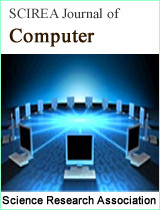Reduction between the Syllogism OAO-3 and the Remaining 23 Valid Syllogisms
DOI: 10.54647/computer52321 82 Downloads 169916 Views
Author(s)
Abstract
With the help of the definitions of three negative quantifiers of Aristotelian quantifiers (i.e. all, no, some and not all), the symmetry of no and some, and some basic inference rules in propositional logic, one can deduce the remaining 23 valid syllogisms only from the syllogism OAO-3. In other words, there is reducible relations between/among different forms and different figures of valid traditional syllogisms. And these reducible relations actually reflect the transformation relations between the monotonicity of the four Aristotelian quantifiers. This paper provides a computational level of reasoning for syllogistic logic and an important theoretical basis for knowledge representation and knowledge reasoning in computers.
Keywords
Aristotelian quantifiers; symmetry; reducible relations; generalized quantifier theory
Cite this paper
Xiaojun Zhang, Long Wei, Yijiang Hao,
Reduction between the Syllogism OAO-3 and the Remaining 23 Valid Syllogisms
, SCIREA Journal of Computer.
Volume 7, Issue 4, August 2022 | PP. 75-84.
10.54647/computer52321
References
| [ 1 ] | G. Patzig, 1969, Aristotle's Theory of the Syllogism, J. Barnes (trans.), Dordrecht: D. Reidel. |
| [ 2 ] | J. Łukasiewicz, 1957. Aristotle’s Syllogistic from the Standpoint of Modern Formal Logic, Oxford: Clarendon Press. |
| [ 3 ] | L. S. Moss, 2008, “Completeness theorems for syllogistic fragments”, in F. Hamm and S. Kepser (eds.), Logics for Linguistic Structures, Berlin: Mouton de Gruyter, 143-173. |
| [ 4 ] | D. Westerståhl, 1989, “Aristotelian syllogisms and generalized quantifiers”, Studia Logica, Vol. XLVII, 4: 577-585. |
| [ 5 ] | L. S. Moss, 2010, “Syllogistic logics with verbs”, Journal of Logic and Computation, 20(4): 947 -967. |
| [ 6 ] | P. Murinová P, and V. Novák, 2012, “A formal theory of generalized intermediate syllogisms”, Fuzzy Sets and Systems, 186: 47-80. |
| [ 7 ] | J. Endrullis, and L. S. Moss, 2015, “Syllogistic logic with ‘Most’”, in V. de Paiva et al. (eds. ), Logic, Language, Information, and Computation, 124-139. |
| [ 8 ] | F. Johnson, 2004, “Aristotle’s modal syllogisms”, Handbook of the History of Logic, 1: 247- 308. |
| [ 9 ] | Xiaojun Zhang, 2020, “Reducible relations between/among Aristotle’s Modal Syllogisms”, SCIREA Journal of Computer, 5(1): 1-33. |
| [ 10 ] | Xiaojun Zhang, 2020, “Screening out all valid Aristotelian modal syllogisms”, Applied and Computational Mathematics, 8(6): 95-104. |
| [ 11 ] | J. Corcoran, 1972, “Completeness of an ancient logic”, Journal of Symbolic Logic, 37(2): 696- 702. |
| [ 12 ] | J. van Benthem, 1984, “Questions about quantifiers”, Journal of Symbol Logic, 49(2): 443-466. |
| [ 13 ] | D. Westerståhl, 2007, “Quantifiers in formal and natural languages”, in D. M. Gabbay and F. Guenthner (eds.), Handbook of Philosophical Logic, 14: 227-242. |
| [ 14 ] | Beihai Zhou, Qiang Wang, Zhi Zheng., 2018, “Aristotle’s division lattice and Aristotelian logic”, Logic research, 2: 2-20. (in Chinese) |
| [ 15 ] | Xiaojun Zhang, 2018, “Axiomatization of Aristotelian syllogistic logic based on generalized quantifier theory”, Applied and Computational Mathematics, 7(3): 167-172. |
| [ 16 ] | Xiaojun Zhang, Sheng Li, 2016, “Research on the formalization and axiomatization of traditional syllogisms”, Journal of Hubei University (Philosophy and social sciences), 6: 32-37. (in Chinese) |
| [ 17 ] | Mengyao Huang, Xiaojun Zhang., 2020, “Assertion or rejection of Łukasiewicz's assertoric syllogism system ŁA”, Journal of Chongqing University of Science and Technology (Social Sciences Edition), 2: 10-18. (in Chinese) |
| [ 18 ] | Xiaojun Zhang, 2020, Research on Extended Syllogism for Natural Language Information Processing, Beijing: Science Press. (in Chinese) |
| [ 19 ] | Xiaojun Zhang, 2014, A Study of Generalized Quantifier Theory, Xiamen: Xiamen University Press. |
| [ 20 ] | S. Peters, and D. Westerståhl, 2006, Quantifiers in Language and Logic, Oxford: Claredon Press. |

